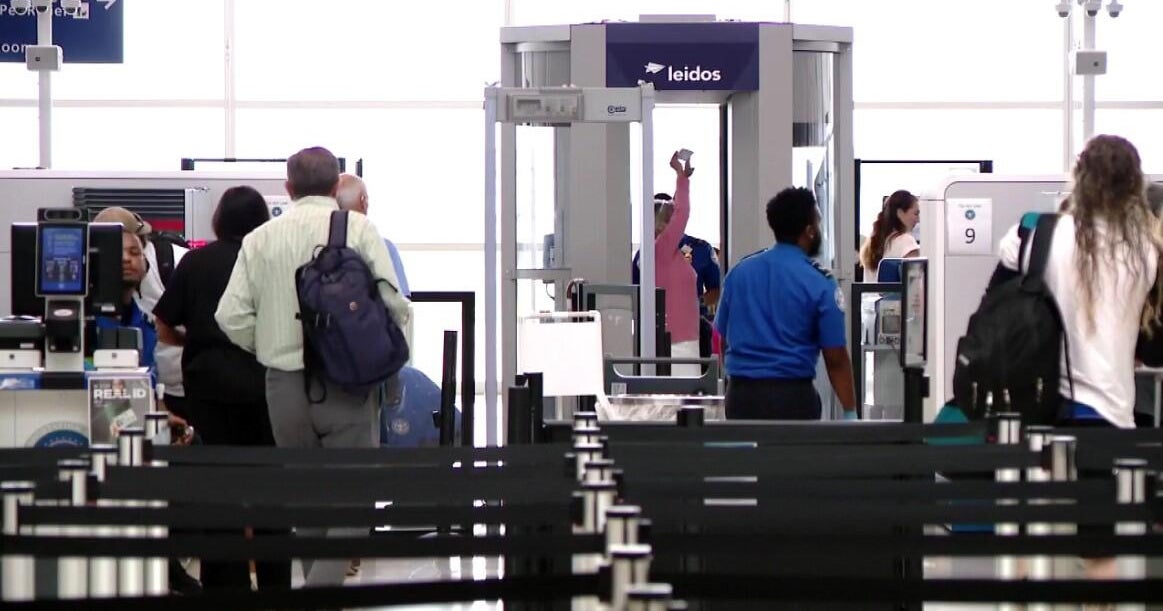Michigan Republicans Continue Economic Focus
LANSING (AP) - Republicans in firm control of the state Legislature say they're setting the stage for an economic turnaround in Michigan after passing sweeping tax and policy changes over the past year.
Business tax cuts that will save employers roughly $1 billion in the state's current fiscal year are set to kick in Jan. 1. Employers also have been helped by recently passed legislation that will save them money on unemployment insurance and worker's compensation benefits. Administration officials and lawmakers are combing through regulations with an eye toward eliminating those they think are hurting job creation.
Senate Majority Leader Randy Richardville and House Speaker Jase Bolger say they're already seeing signs the state is on the right track with policies crafted in conjunction with GOP Gov. Rick Snyder. All three have business backgrounds, and it shows in the policies they've promoted since assuming their leadership roles in January.
"When we started this year ... there was a lot of work that needed to be done," said Richardville, a veteran lawmaker who previously had finance-related jobs with La-Z-Boy Inc., Herman Miller Inc. and other companies. "By far the top priority has been improving the business environment for jobs and growth."
Democrats say Republicans are damaging the middle class, public employees and schools in a give-away to corporate interests. The business-oriented changes have come at a cost, including reduced funding for public education, eroding benefits for public employees and taxes on retirement income. Workers who lose their jobs starting in January will be eligible for only 20 weeks of unemployment benefits, down from 26.
"What's been happening this past year has certainly been horrible for the people of the state of Michigan," said Rep. Richard Hammel of Genesee County's Mount Morris Township.
While Democratic lawmakers have objected to and voted against many of the GOP proposals, their minority status in the House and Senate have left them powerless to stop them.
Republicans "simply refused to see that their policies are hurting Michigan seniors, families and unemployed workers trying to find new jobs," said Hammel, the top-ranking House Democrat.
The first broad test of what Michigan voters think of the Republican reforms will come next November, when all 110 seats in the state House are up for re-election. Republicans hold a 62-46 edge in the chamber with two vacancies. In the Senate, where Republicans outnumber Democrats 26-12, no one is up for re-election until 2014.
GOP leaders are hoping for dramatic signs of a revitalized Michigan to boost them heading into next year's election, while Democrats are hoping their success last month recalling Republican Rep. Paul Scott means they have a chance of regaining the House majority.
The state's jobless rate fell to 9.8 percent in November, dipping below double digits for the first time in three years. But part of the decline is attributable to a smaller workforce, as discouraged residents quit looking for jobs or move out-of-state. Michigan's unemployment rate remains well above the 8.6 percent national rate.
Republicans point to Fitch Ratings' decision this summer to revise its outlook for Michigan bonds from stable to positive, reflecting what it called "prudent budgeting" for the new fiscal year.
Pushed by Snyder, lawmakers had the 2011-12 budget in place by late May, the fastest pace in 30 years. A tentative spending estimate for 2012-13 forced lawmakers to look farther into the future than usual.
Snyder has signed about 265 new laws since taking office in January, well above average for the first year of a two-year legislative cycle in Michigan. He was helped by the GOP majorities in the House and Senate, who provided the votes even for hotly contested measures such as a law granting sweeping new powers to emergency managers appointed to run financially struggling cities and schools.
The law, which critics are trying to overturn through a voter referendum and a lawsuit, allows emergency managers to toss out union contracts and strip authority from locally elected officials. Opponents call it a Lansing power grab, undermining democracy and union rights. Supporters say it provides struggling cities and schools with more tools to fix their finances.
Teachers' unions have been among the harshest critics of Republican-backed legislation, including a law that weakens the significance of teacher tenure. Unions also don't like a Republican-backed bill, awaiting Snyder's signature, to allow faster growth of charter schools. Republicans say those changes will increase choice and improve the quality of public schools, but many Democrats say they'll weaken even well-performing school districts.
Some policy changes that had eluded Michigan lawmakers for years were signed into law in 2011, including requiring public schools to adopt anti-bullying policies. A measure speeding up the arbitration process for police and fire department labor disputes, making a community's ability to pay the top factor, was signed in July.
The binding arbitration law had been considered "too hot to handle" for years, Bolger said, but lawmakers were able to work with police and fire unions to get the changes through the Legislature.
GOP lawmakers balked at some of the top issues on Snyder's agenda, however. They refused to authorize a new bridge spanning the Detroit River between Michigan and Canada that Snyder strongly supports. The House has given a cold shoulder to the governor's efforts to set up a health insurance exchange required by the federal health care law. And the governor's request to consider $1.4 billion in new road revenue went nowhere.
Those issues and others are expected to keep lawmakers busy as they head into the second and final year of the current legislative session.
The biggest fight might be over what to do with the personal property tax paid by businesses on equipment such as computers and machines used in manufacturing. Republicans want to phase out or eliminate the tax, but they haven't figured out a way to replace the more than $1 billion it raises each year statewide for local governments and schools.
Republicans say they'll be sensitive to replacing that revenue, but they have to remain focused on improving the state's business climate.
"Job creation has been the focus, and it will continue to be," Bolger said. "To make Michigan a better place to find a job, we have to make Michigan a better place to provide a job."
© Copyright 2011 The Associated Press. All Rights Reserved. This material may not be published, broadcast, rewritten or redistributed.







